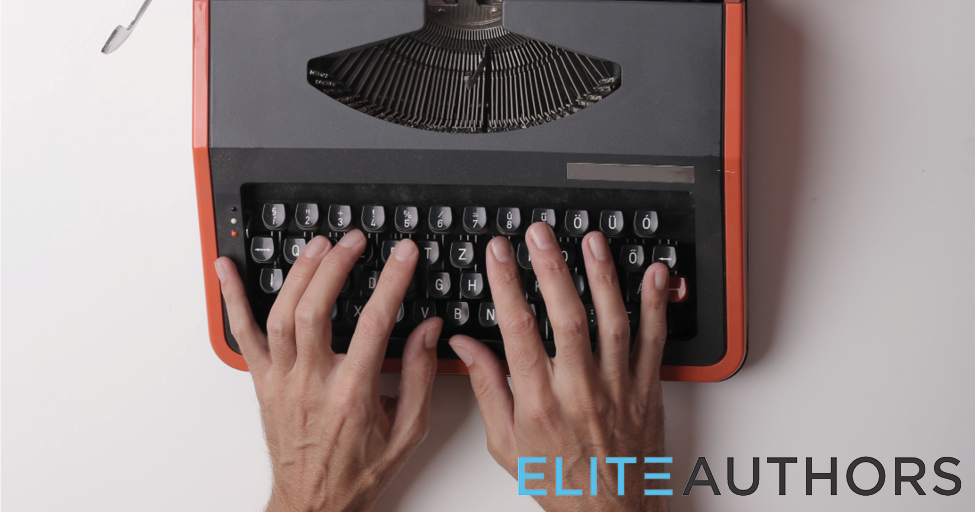
Indie Book Marketing Ideas
October 21, 2020
How to Market Your Book Globally
November 4, 2020Different Types of Book Editing: Understanding Your Options
So you’re writing your first (or fifth, or fiftieth) book. Whether you’re a first-time author or an established pro, you’ll need an editor if you plan to publish your work. Good book editing services can help ensure your manuscript is cohesive, error-free, and ready to make an impact on your readers.
Here’s the confusing part: there’s more than one kind of book editor. Considering content, style, grammar, and formatting all in one go is too much for a single round of edits—and probably too much for one editor. Therefore, you’ll need to figure out not only when to hire an editor but also which pro is best suited to the current stage of your book’s journey.
Types of book editing services
One easy way to understand book editing is as a spectrum of services. These can range from high-level substantive editing, developmental editing, or a manuscript critique to the final, detailed proofread. The type of editor you need depends on the current stage of your book. An author who has just completed an early draft likely isn’t ready for a copy editor’s fine-tooth comb. And if you’re already happy with your book’s structure, you may want to skip the developmental edit and move straight into line editing.
So what makes each type of editing unique? Let’s cover each one in detail.
Developmental editing
Developmental editing is also known as structural or substantive editing. Brace yourself: this is often where your book gets messy!
During a developmental edit, your editor takes a high-level look at your manuscript to evaluate whether elements like your plot, themes, character development, or central argument effectively achieve your goals. Writing a mystery or thriller? Your editor may point out inconsistencies or plot holes that derail your intent. Working on a nonfiction manuscript? Your editor can help make sure your chapters build on each other to support your thesis.
Developmental editing can be a tough process, but it’s essential to writing your best book. Just like metalwork, your manuscript needs to experience some heat in order to become something beautiful. Depending on what kind of book you’re writing, that could mean cutting unnecessary characters, adding new subplots, or changing up your chapter order so your argument flows better.
Line editing
Line editing sits on the spectrum between developmental editing and copy editing. At this stage, the focus shifts from your manuscript as a whole to each individual sentence. As their title suggests, line editors go line by line to evaluate tone, word choice, syntax, and sentence structure.
Line editors are a stylish bunch. Well, at least when it comes to making sure your writing style is consistent. The way you style your sentences can change depending on your mood, energy level, and even the last book you read. Your line editor will be the first to notice if you’ve used too-formal diction or slipped into a stream of consciousness that feels out of place.
A line editor is a little like a piece of sandpaper—though hopefully not as rough! This expert’s job is to make sure every sentence reads smoothly. As a side note, line editors are often great at critiquing character dialogue to help you make sure cowboys don’t talk like English noblemen and kids don’t sound like forty-year-old professors. Since a lot goes into line editing, it can be one of the most time-consuming editorial services.
Copy editing
If you’re ready for a copy edit, congratulations are in order. You have made it through some of the toughest stages in the editing process. At this point, your book should have a solid foundation and consistent style. Now it’s time to home in on the finer points of your manuscript: grammar and conventions.
Expect your copy editor to return your draft with a boatload of suggested edits: Add a comma here. Use a different word there. Let’s fix this dangling modifier. While the process can be tedious, catching these errors before publishing your book is key to keeping readers happy!
Copy editors refer to specific style manuals to find grammatical discrepancies in your manuscript. They also consider many small parts:
- Fact-checking
- Punctuation
- Spelling
- Grammar
- Readability
- Layout
- Clarity
- Consistency
After you work with a copy editor, your manuscript should be well groomed and ready for a date with an agent or publisher.
Proofreading
As a subset of copy editing, proofreading deserves a brief mention. Proofreading is the final comb-through of your manuscript to prepare it for publishing. Why do you need a proofreader? There are at least three excellent reasons:
- Your copy editor may miss a few errors. So it’s great to get a proofreader’s sharp eyes on your book.
- As you accept and reject copy edits, you may accidentally introduce other errors. A proofreader can catch little mistakes like extra spaces or missing punctuation.
- A proofreader can check your book’s formatting for correctness. Trust this detail-oriented expert to help prep your book for publication.
Above all, a proofreader is your last line of defense before your book meets the world. This pro can help make sure small errors don’t hurt its credibility after publishing.
Understanding the different types of editing
Now that you’re familiar with each type of editing, you need to decide when and if your book needs all of the above services. If you haven’t noticed, there’s a clear order of operations to the book editing process. For instance, it doesn’t make sense for a copy editor to polish your draft when what your book really needs is to get messy in the hands of a developmental editor! Here’s how to know what type of editing your book is ready for:
If you are just starting your writing project
At this stage, you need a big-picture thinker. More specifically, you need a developmental editor. While some authors think structural editing is only for completed manuscripts, you can bring in structural or developmental editors at any early stage of the writing process. That’s because these pros often function as strategists and mentors. They can help you gain clarity and focus, whether you have notes, an outline, or a full draft.
After all, good ideas take some time to shape up. And turning your vision into a completed book often calls for a carefully planned approach. Developmental editors can offer guidance on how to organize your chapters or map out your plot—even before you’ve started writing.
If you have a completed manuscript
Just typed the last word of your first draft? Congratulations! At this point, wise writers let their work sit for a while before rereading for glaring errors. But editing on your own will only get you so far. It’s easy for writers to “throw the baby out with the bathwater” by editing overzealously and cutting vital parts of their work. On the other hand, you may not be bold enough to “kill your darlings,” as the saying goes. That means you may have written some stunning passages that don’t serve your book as a whole. Those are the hardest to slice and dice.
Again, a developmental editor can help you make these tough calls. This expert can offer the unbiased second opinion you won’t get from the people closest to you. And editors with experience in your genre can approach your book with knowledge of the publishing market you hope to enter. They could help tighten your manuscript to stay within the standard page count for your genre or ensure your plot has the right number of twists and turns for your target audience. Most importantly, you’ll get an honest assessment of your work along with the tools and encouragement you need to make major revisions.
Of course, a completed manuscript means something different to everyone. Maybe you’ve revised and polished your book over multiple drafts or already finished a few rounds of structural editing. In that case, the next step may be a line edit to fine-tune your language at the sentence level. You might even be ready to hire a copy editor.
If you are interested in a collaborative approach to your work
Maybe you have a wealth of stories to tell but struggle to get words on the page. Perhaps you wish to write for an English-speaking audience, but English is not your first language. Or maybe you simply don’t have the time to commit to writing but still want to share your amazing stories or subject-matter expertise with the world.
If you identify with any of those scenarios, think about working with a ghostwriter. A ghostwriter is an experienced writer who specializes in helping other people put their thoughts, ideas, and knowledge into words. These pros work collaboratively with you to understand not just your topic, but your voice and personality. They’ll interview you to learn your story and your goals behind telling it.
In other words, ghostwriting is not a matter of turning over your great idea to somebody else. It’s a partnership with an expert who can help bring your story to life. You will retain all rights to the work, and nobody has to know you hired a ghostwriter unless you want them to. So if you have a great idea for a book, don’t let a lack of time or writing chops keep you from sharing it.
How to choose the right type of editing for your book
Again, the type of editing you need depends on your stage of the writing process and the shape your manuscript is in. But other considerations apply. Here’s what to think about (and avoid) when choosing editing services that fit your needs.
What you should consider when deciding what type of editing is right for you
When evaluating editing services, keep these key considerations in mind:
- Your budget
Developmental editing and line editing tend to be the most expensive editorial services. They’re also key to creating a cohesive, well-organized book full of snappy sentences. That said, if your budget can’t accommodate multiple stages of editing, look for an editorial services company that can bundle two or more services at a discount.
- Your “why”
Your goals behind writing your book can help you determine what editing services you need. For instance, if you’ve recorded your memories and family stories for future generations but don’t intend to market your book to a wider audience, you probably don’t need a developmental editor or line editor to whip your manuscript into shape. But a copy editor can give your book the polish it deserves.
- What’s included
Editing services can range from the basic to the comprehensive. Besides that, some editors charge a lower rate but provide less for the money. And a freelance editor working alone may offer fewer bells and whistles than a book editing service that employs many editors. When vetting editors, ask about the amount and type of feedback you will receive. Learn whether the provider offers discounts for combining multiple services. And find out what options you have if you aren’t completely satisfied with the finished editing job.
What you should avoid when deciding what type of editing is right for you
Here’s what to steer clear from as you chart your course:
- Cutting corners
The worst mistake an author can make after investing countless hours in a manuscript is to forgo a critical editing stage. Yes, editing services can be expensive, especially if you need multiple types of editing. But deciding not to hire a thoughtful developmental editor or sharp-eyed copy editor can be a big mistake. Ask a professional editor to evaluate your manuscript and provide honest feedback on where you stand. If your manuscript truly needs work, cutting corners will prevent your book from achieving its full potential.
- Expecting your editor to make all the decisions
Working with an editor is a partnership. Regardless of the editing stage, your editor never has the last word. You do. That means putting in the work to implement your editor’s feedback—or dismiss certain suggestions if you disagree. If there’s an edit you don’t understand, make the effort to follow up with your editor and obtain clarity. You’ll get the most out of your editing service when you take an active role in the process.
- Relying on friends and family for editing help
Your friends and family can provide helpful feedback. They can support and encourage you. But unless they are professional editors, they can’t edit your book. You need an objective outsider (who also happens to be a publishing insider) to give you an honest appraisal of your work. The best freelance editors understand how to give constructive criticism without hurting your feelings. But in the end, their goal is to make sure your book is awesome. If it isn’t there yet, they’ll let you know.
What if you have yet to share your work with anyone?
It never hurts to ask friends for feedback. But unless you count book editors and publishing pros among your closest pals, their opinions may not be much help. Instead, hire a developmental editor. It doesn’t matter how early you are in the writing and editing process. If you are serious about finishing and publishing your book, it’s the best investment you can make.
If you’re not ready to hire an editor, consider joining a writing group. This can be a wonderful way to workshop your materials, meet new writer friends, and get actionable feedback. But again, unless your writing group members have professional expertise, you should take their advice with a grain of salt.
Cost of each type of book editing
When evaluating editing fees, look for transparency. Knowing what services your money buys ultimately matters more than the bottom line. Why? Because bargain editorial services may not offer the quality your book deserves. Being willing to pay a little more opens the door to a more comprehensive experience and the chance to work with skilled, caring editors who want your book to succeed as much as you do.
Editing services may charge per hour, word, or page. Below is a price breakdown of typical rates for different types of editing services:
| Type of Editing | Per-Word Costs | Per-Hour Costs |
| Developmental editing | $0.07–$0.12 | $45–$55 |
| Line editing | $0.02–$0.04 | $40–$60 |
| Copy editing | $0.016–$0.03 | $30–$50 |
| Proofreading | $0.01–$0.08 | $35–$35 |
To see an example of pricing, check out our pricing structure.
By the hour or by the project?
Although some editors charge by the hour, others charge by the project. There are pros and cons to both.
Paying by the hour provides an incentive for your editor to give your work the time and attention it needs. Your editor may be less likely to cut corners. But with this fee structure, it’s easier for unscrupulous editors to pad their hours. Additionally, your total cost will depend on your editor’s pace. A slower editor won’t necessarily do better work than a faster one, but you’ll pay more for the service.
Paying per project or per word means you’ll know up front how much the editing job costs—no surprises! Your editing service should have factored in how much work your manuscript will require, ensuring your editor is incentivized not to cut corners.
Factors contributing to editing costs
When you first calculate how much editing costs, you may be in for a shock. However, before swearing off editors, think about everything that goes into the process. Good editors read through your work multiple times at a slow pace, take detailed notes, and provide you with structured feedback. In fact, editing can be almost as time consuming as writing.
These and other factors go into determining editing costs:
- The length of your manuscript
- Your genre (specialized academic texts can cost more to edit)
- The type of editing you need
- The editor’s experience and expertise
- The number of read-throughs performed
- Your deadline (expedited editing typically costs more)
- The amount of feedback provided
Most authors agree editing services are worth the investment. That’s especially true if you plan to self-publish or pitch to agents and publishers.
Where do you go from here?
Maybe your book still lives in your imagination, but you can’t wait to get started. Or maybe you have a well-developed manuscript that’s inches away from the finish line. Regardless, your project deserves attention from experienced editors. Your readers deserve a well-edited book. And you, the author, deserve support on your writing journey.
If you are looking for an editor, we’d love to meet you. Elite Authors provides comprehensive editing services to help you at any stage of the writing journey. No one else makes it easier to craft, edit, proofread, format, package, market, print, and publish your book. Connect with us!



